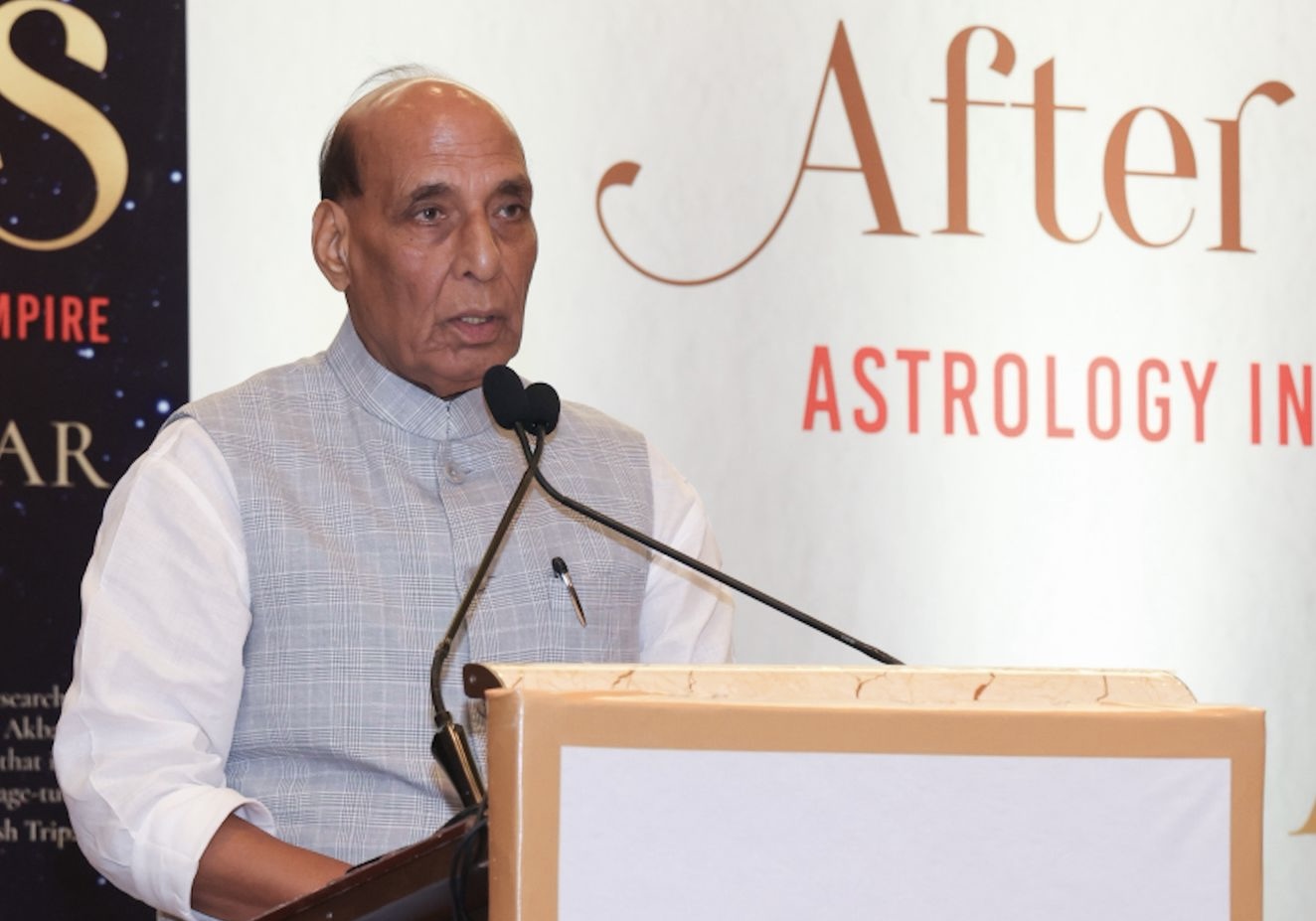
Raksha Mantri Shri Rajnath Singh calls Pakistan a “Jelly State”, hails India’s rise rooted in decade of reforms
Raksha Mantri Shri Rajnath Singh while addressing a commemorative book launch event in New Delhi on October 06, 2025, quoted veteran journalist MJ Akbar’s description of Pakistan as a “Jelly State” — a nation neither achieving stability nor disintegration. Asserting the quote, Raksha Mantri remarked that the whole world now recognizes this reality.
Shri Rajnath Singh highlighted India’s remarkable economic growth and stability, crediting it to a series of transformative policy reforms implemented over the decade. He further said that India, currently the world’s fourth-largest economy, is on track to become the third-largest by 2038, with an estimated GDP of $7.3 trillion by 2030. “According to an IMF estimate, based on average growth rates, India is on track to become the world’s second-largest economy in terms of Purchasing Power Parity (PPP) by 2038”, Raksha Mantri added.
Drawing a comparison with the geopolitical situation in South Asia, the Raksha Mantri said that India’s progress and stability stand out in the region. “You may recognize the present without knowledge of the past, but you cannot understand it,” he quoted M J Akbar, emphasizing that India’s current rise can only be understood in the context of consistent efforts and reforms undertaken over the past 11 years.
Shri Rajnath Singh underlined that India’s growing global stature, both economically and strategically, is a result of visionary leadership, sustained reforms, and a commitment to inclusive development.
The Raksha Mantri also lauded M.J. Akbar’s profound scholarship and literary excellence. “He has an impressive grasp over history. When his deep understanding of history meets his incisive writing, magic happens on the pages.” RM remarked.
Presenting an example from the book “After Me, Chaos”, Shri Rajnath Singh shared how M J Akbar’s writing combines historical insight with literary brilliance. “He writes that a few days before Aurangzeb’s birth, Jahangir saw a spear-shaped comet in the sky. Three years earlier, when Dara Shikoh was born, there was a solar eclipse. M.J. Akbar ji connected these two events and drew a beautiful conclusion: ‘Both astral events were considered ominous by Jahangir. In retrospect, they might serve as metaphors. Dara Shikoh was eclipsed, but the Aurangzeb meteor burned out the empire.’”
He added that the book not only showcases Akbar’s mastery of narrative but also highlights the deep cultural and historical influence of astrology in the Mughal era. “Aurangzeb was undoubtedly a fanatic ruler who persecuted other faiths, especially Hinduism. But even he could not escape the influence of astrology. His horoscope had foretold the nature of his reign and the chaos that would follow. Aurangzeb himself had said, ‘After me, there will be only chaos.’ This, fittingly, is the title of M J Akbar’s book,” Shri Rajnath Singh said.
RM stated that the book ‘After Me, Chaos’ not only reveals the extraordinary power of M J Akbar’s pen but also underscores the enduring power of astrology as a force shaping perceptions and decisions in history.
पाकिस्तान एक जेली स्टेट है। pic.twitter.com/kwqwvjViWy
— Rajnath Singh (@rajnathsingh) October 6, 2025